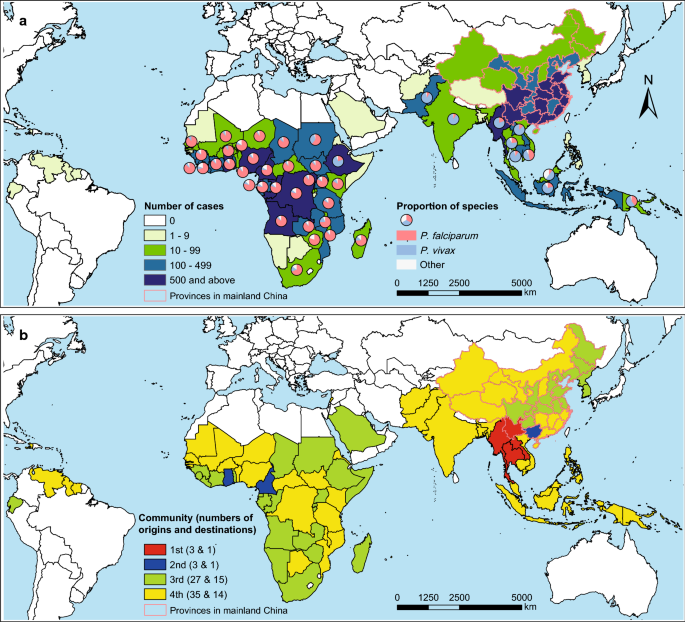Changing epidemiology and challenges of malaria in China towards elimination
Background
Historically, malaria had been a widespread disease in China. A national plan was launched in China in 2010, aiming to eliminate malaria by 2020. In 2017, no indigenous cases of malaria were detected in China for the first time. To provide evidence for precise surveillance and response to achieve elimination goal, a comprehensive study is needed to determine the changing epidemiology of malaria and the challenges towards elimination.
Methods
Using malaria surveillance data from 2011 to 2016, an integrated series of analyses was conducted to elucidate the changing epidemiological features of autochthonous and imported malaria, and the spatiotemporal patterns of malaria importation from endemic countries.
Results
From 2011 to 2016, a total of 21,062 malaria cases with 138 deaths were reported, including 91% were imported and 9% were autochthonous. The geographic distribution of local transmission have shrunk dramatically, but there were still more than 10 counties reporting autochthonous cases in 2013–2016, particularly in counties bordering with countries in South-East Asia. The importation from 68 origins countries had an increasing annual trend from Africa but decreasing importation from Southeast Asia. Four distinct communities have been identified in the importation networks with the destinations in China varied by origin and species.
Conclusions
China is on the verge of malaria elimination, but the residual transmission in border regions and the threats of importation from Africa and Southeast Asia are the key challenges to achieve and maintain malaria elimination. Efforts from China are also needed to help malaria control in origin countries and reduce the risk of introduced transmission.
Read more here: https://malariajournal.biomedcentral.com/articles/10.1186/s12936-019-2736-8#citeas



